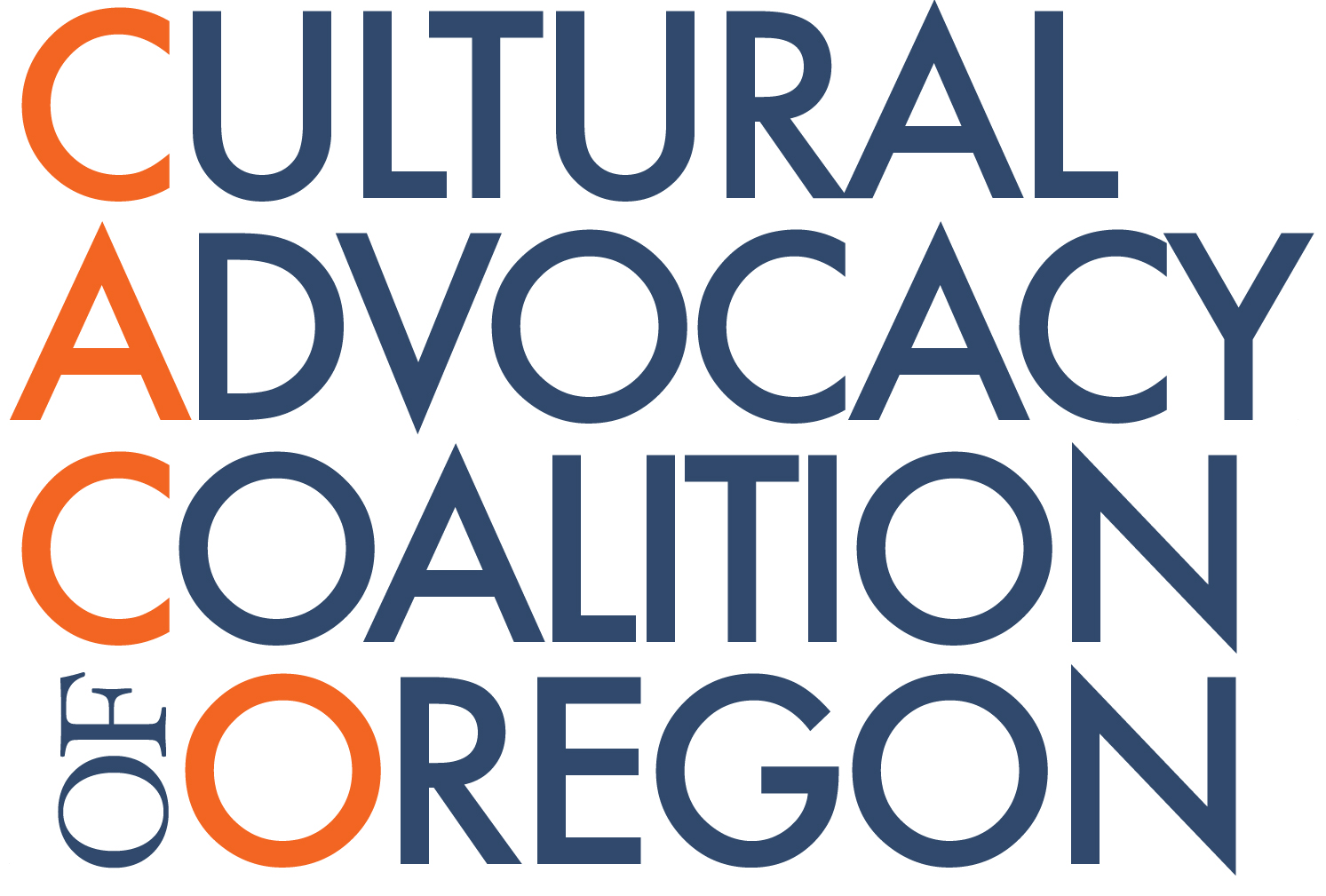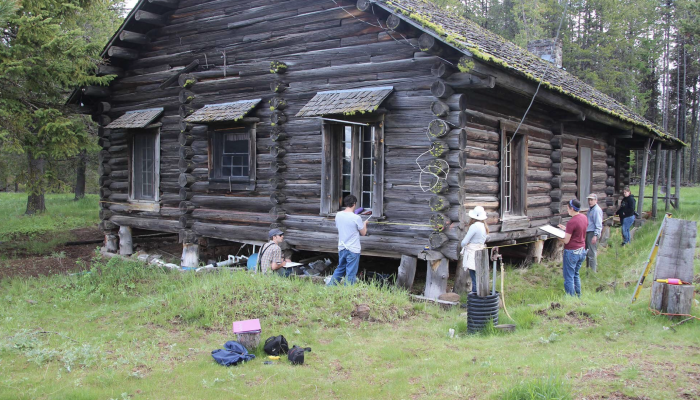We evaluated each of these applications in a peer review process led by Coalition board members and with expertise from staff of the Coalition, the Oregon Cultural Trust, and the Oregon Arts Commission. Using specific criteria from economic impact to expanding access to the arts, we saw many exciting projects under development and we recieved more than 40 applications across the state. Learn more about the application and endorsement process of these capital construction projects on our webiste.
The Coalition has urged Governor Kate Brown to include these projects in the 2021-2023 budget. She will issue her budget in December and the legislature will debate it before adopting it on or about June 30, 2021.
Two previously endorsed projects, the Patricia Reser Center for the Arts in Beaverton ($1.5M), and the Lincoln County Cultural Center in Lincoln City ($1.5M), which received lottery-backed bond funding in the 2019 session, have had their funds rescinded due to the current economy and the state’s inability to sell lottery bonds. As soon as bonds can be sold again, the Coalition strongly urges the state to carry forward the commitment to these projects as an equally high priority to the new slate.
“While the state’s budget situation is uncertain at this time, these capital construction projects demonstrate that arts and culture can break through the current haze of multiple civic disruptions and create spaces for learning and restoration for our people,” said Sue Hildick, Cultural Advocacy Coalition Senior Advisor.
Note: The photos below feature highlights of projects, missions, and/or various events and may not be specific to the capital construction project.
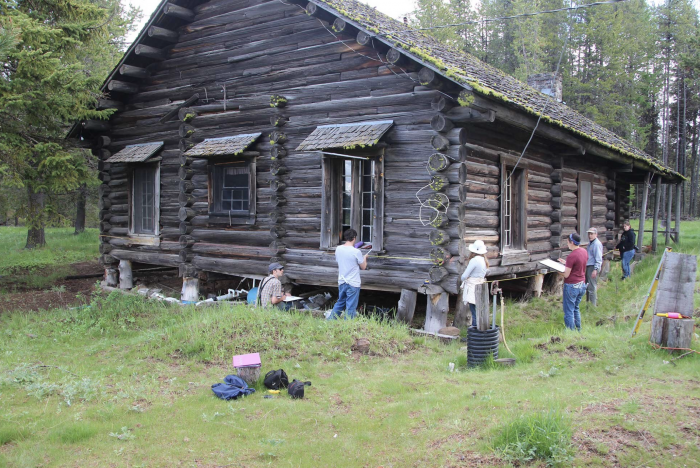
Amount Requested: $750,000
Estimated Project Costs: $2,500,000
MHIC’s mission is to gather, preserve, and share the rich history of African American, Indigenous, and immigrant loggers in the Pacific Northwest. The organization is working with Hancock Forest Management to preserve the historic Maxville Townsite in Wallowa County, in order to showcase the multi-ethnic logging culture of the Pacific Northwest and prevent the erasure of Oregon’s cultural heritage in one of our most rural – communities. The Maxville Townsite provides one of the few windows into a particular part of the Amirian story: the migration of African Americans to the Pacific Northwest at a time when exclusionary laws and sundown codes were in place. MHIC envisions more robust educational experiences using its collections and this historic site to offer internships through the regional university, access and events for K-12 students, and increased tourism activity. MHIC currently hosts programs including an “Annual Gathering” which is the largest annual educational even tin Wallowa County. Fundraising is underway and the organization has pledged to hire locally and partner with the community in rebuilding and relocating the historic lodge and to build fencing around the site.
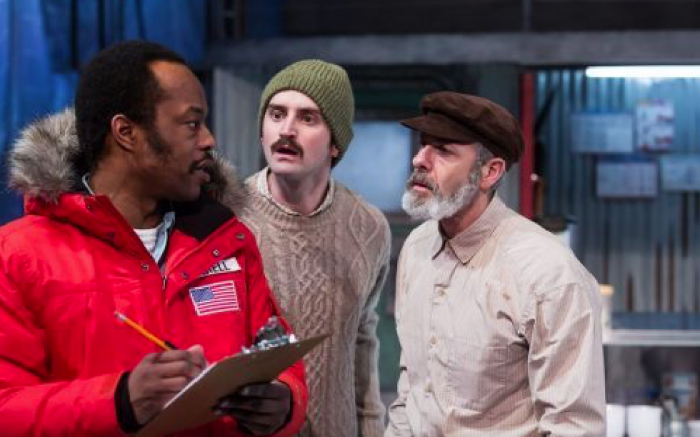
Artists Repertory Theatre (ART), ARTsHub
Amount Requested: $2,000,000
Estimated Project Costs: $32,667,880
ART is Portland’s oldest professional theatre and has risen to become a significant presence in American theatre, with a legacy of producing acclaimed regional and world premieres. The organization is in the midst of creating a modern multi-use performing arts center with two theatres, four rehearsal halls, and collaborative workspaces. The vision is to provide affordable performance and rehearsal space by providing programs and services that help smaller arts and community organizations survive and thrive. Last year almost 50 nonprofits, 11 of which are resident companies, produced more than 1,000 events in ART spaces. The CAC believes this is a pioneering national model for collaboration and expanding access to the arts. ART has raised 60% of the necessary funding including a $7.1 m. gift in 2018 which allow the organization to pay off their mortgage on their entire downtown clock and catalyze the 2019 sale of the north half of the block to lead the investment in reimagining the space. Construction of this project supports 163 jobs per year and contributes $25.3 m. in economic activity over the lifecycle of its evolution. Post construction, on-going operations will support 106 jobs and $11.4 m. in economic activity per year.
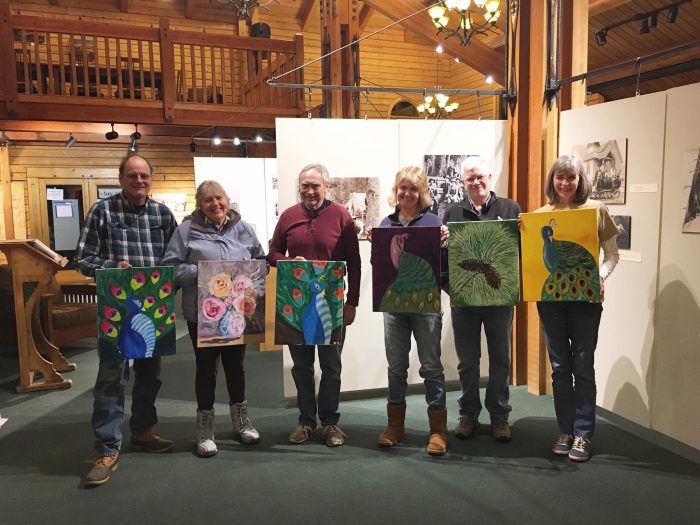
Josephy Center for Arts and Culture (JCAC), Facility Expansion and Renovation
Amount Requested: $600,000
Estimated Project Costs: $1,892,330
JCAC is raising funds to secure a permanent home for its work through acquisition of its current facility in downtown Joseph. Since 2012, JCAC has been providing arts and culture to the residents of Wallowa County. Owning and reimaging the facility will bring an expanded ceramics studio, an art garden, a companion gallery, a multi-purpose space for performing art and movement classes, and a dedicated space for Nez Perce education and artifacts. The owner of the building is giving JCAC the first option to buy the property for less than half of the appraised value and has offered a gift of $100,000 for an operating endowment once the sale is complete. The board, staff and community are actively raising $575,000 to apply to the purchase of the building and perform necessary maintenance.
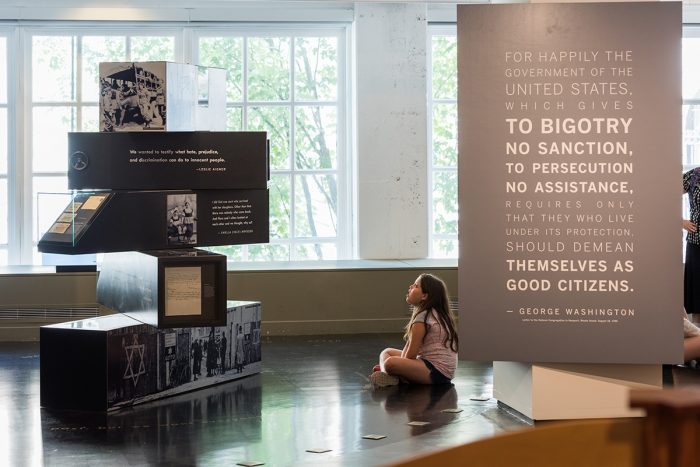
OJMCHE is an essential part of the cultural landscape in its neighborhood in northwest Portland and a significant asset statewide to help meet the statewide Oregon Holocaust and Genocide Education mandate which was signed into law in June, 2019. On an annual basis, 35,000 people attend programs at OJMCHE and at the Oregon Holocaust Memorial. The organization’s archives preserve and protect more than 14,000 photographs, 10,000 objects, 1,000 archival collections and 800 oral histories, safeguarding these treasures for future generations. State funds will support the acquisition and renovation of the Charles Hartman Gallery which is contiguous to OJMCHE. The 1,000-gallery space will be joined with the Museum’s existing main gallery and will be devoted to immersive and interactive exhibitions focused on civil rights and human rights. Expansion will allow for attracting new audiences; and better utilization of the space for student and school programming. The leaders of OJMCHE work in partnership with other organizations integral to the development of human rights and civil rights exhibitions like the Western States Center, the Oregon Justice Resource Center, Children’s Education Trust, Don’t Shoot Portland and the Muslim Education Trust. A capital campaign is underway anchored by a lead gift of $100,000 and foundation grant applications are under review.
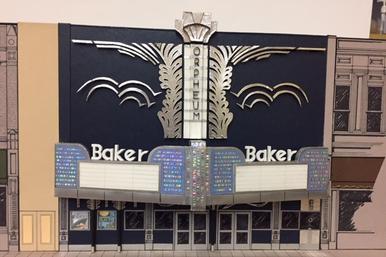
Eastern Oregon Regional Theatre (EORT), Baker Orpheum Theatre RenovationAmount Requested: $295,000
Estimated Project Costs: $674,814
EORT is a volunteer group dedicated to renovation of the iconic vaudeville Orpheum Theatre in downtown Baker City in order to expand access to arts and humanities in this important yet isolated rural Oregon community. The project will rebuild a community jewel that will support 325 seats and be able to attract traveling artists as well as local arts and culture groups. The architectural and engineering design work has already been completed and CREF funds will be used for structural upgrades for seismic stability and to support the light, sound, and fly rigging required. It in an exciting time for Baker City which is Baker becoming an arts and culture destination in the Inland Northwest with numerous galleries, an average First Friday attendance of 300-500 guests, and a growing award-winning music scene with a new community orchestra and community choir. As the Orpheum Theatre emerges back into its prominent place, it will be the jewel on Baker City’s Main Street to energize the community.
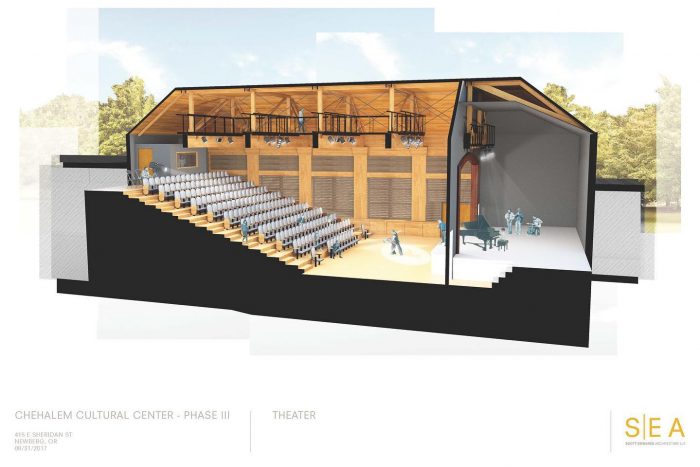
Chehalem Cultural Center (CCC), Performing Arts Wing
Amount Requested: $1,250,000
Estimated Project Costs: $5,000,000
CCC is the largest provider of arts programming in rural Yamhill County and is vital to the arts ecosystem of the region currently serving over 85,000 children and adults annually. The Chehalem Valley currently lacks a quality mixed use, mid-sized performance venue outside of a university. CCC’s performance programming has doubled between 2018 and 2019 and they are literally bursting at the seams. The project would revitalize 9,167 square feet on the second floor of their existing building, the former Central School, by renovating the existing 250-seat theater that is original to the building; adding a multipurpose room and storage space; building a movement studio adjacent to our existing second floor classrooms; adding a multipurpose room for meetings, classes and events; and unifying it all with a grand staircase and a second floor lobby. To date CCC has raised $2.5 m. in committed funds and plans to start construction in spring of 2022. This project will create 31 construction jobs and result in over $2.1 m. in spending elsewhere in Yamhill County.
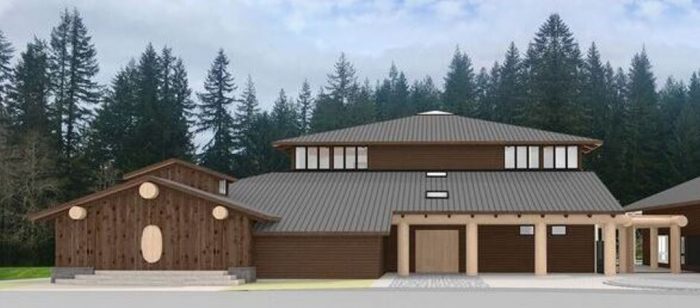
Siletz Tribal Arts & Heritage Society (STAHS), Cultural Heritage Center
Amount Requested: $750,000
Estimated Project Costs: $11,500,000
The mission of STAHS is to support and promote the practice, conservation, and restoration of the tribal cultures of the Confederated Tribes of Siletz Indians. The Confederated Tribes is the most diverse confederation of Tribes/Languages/Cultures on a single reservation. The primary initiative of STAHS is to build and construct The People’s Place – Ghii Dee-Ne Dvn – a cultural heritage center to be built on Government Hill in Siletz, Oregon. The People’s Place will focus on preserving culture and the languages used to express culture for American Indians and Alaska Natives. This facility is to be a place of healing. The Tribe has already provided the resources to build Phase I of this project which was collection storage and has pledged to match all gifts up to $2.5 m. made with a 3:1 match. Phase II will provide exhibits, research and archival storage space as well as group presentation areas, and offices. Construction of the heritage center will generate approximately 89 direct construction jobs plus 78 supplier jobs and 123 induced jobs.
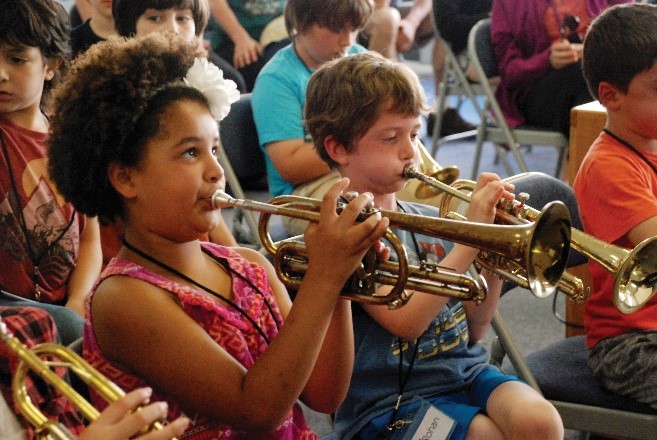
Shedd Institute for the Arts, North Entrance Remodel
Estimated Project Costs: $5,944,694
The Shedd Institute in downtown Eugene is a non-profit performing arts company, community music school, and venue manager that serves Oregon with year-round professional performances and educational programs, and with venue rentals for a wide range of other community events. Through its 190+ concerts/events and year-round music school lessons and classes, the company serves more than 85,000 different patrons representing over 295,000 annual visits in the pursuit of its mission to assist people of all ages, interests, and ethnic and cultural backgrounds “…find and nurture community through discovery, creation and celebration.” To facilitate this work in 2002 The Shedd moved into a former 70,000 sq. ft. church and began a long-term transformation of that facility, starting with an initial $7.2M purchase/remodel campaign and culminating in its current 7-year $18.25M Complete the Transformation campaign to make the building fully useable, more accessible and maximally welcoming to everyone. With $9.3M completed on that campaign to date, The Shedd now turns to the campaign’s next phase: an extensive $5.95M renovation of the NE corner of the building, which will replace the building’s extremely challenging primary entry stairs with a new, accessible ground-level entrance with elevator directly from The Shedd’s parking lot, thereby addressing an ongoing major problem faced by patrons of all ages who have any degree of mobility limitation. In addition, this project provides for vastly- improved operations management, building security, environmental efficiencies, concert hall operations and accessibility, and increases the usable footprint of the building by 1,900 square feet.
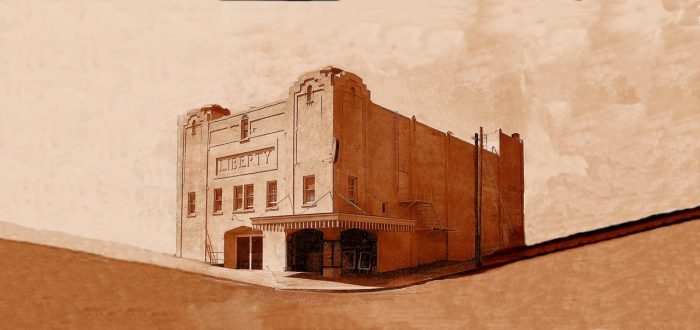
Little Theatre on the Bay LTOB), Liberty Theatre Expansion/Enhancement
Amount Requested: $600,000
Estimated Project Costs: $872,000
LTOB was formed when a group of actors joined together to produce live radio plays in the greater North Bend/Coos Bay area. The organization’s mission is to cultivate the arts in Coos County. LTOB has operated North Bend’s historic Liberty Theatre since 1959 and is currently engaged in a multi-phase capital campaign for capital improvements to the building. LTOB has raised more than $2 m. and completed the first three phases and has the remaining phases underway. They seek the funding for the final phase VI which builds a 4606 square foot second story addition. This space will support children’s programming, expanded rehearsal capacity, a costume room and installation of an elevator to make the theatre fully accessible for all. The goal is to complete the work by 2024 in time for the 100-anniversary of the iconic building’s opening.
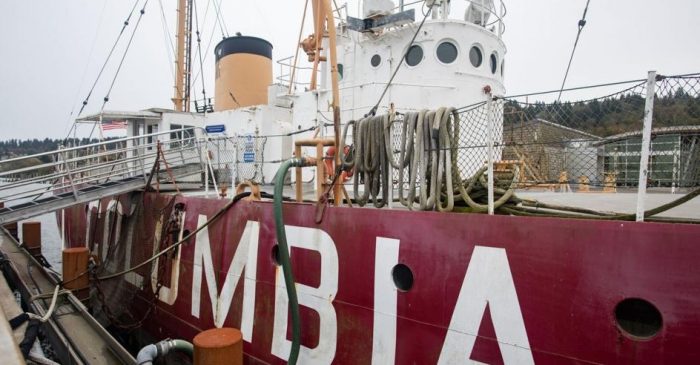
Amount Requested: $304,378
Estimated Project Costs: $1,151,256CRMM was founded in 1962 and is Oregon’s Official Maritime Museum serving over 120,000 people a year. In 2019 the Museum’s on-site and in-school programs reached more than 15,000 students primarily in Multnomah, Washington, Columbia, Clatsop, and Tillamook counties. The Museum seeks funding to restore and preserve the historic lightship Columbia, one of just a handful of surviving lightships in the nation. On display since 1979, Columbia has last dry docked in 2002 and is now in urgent need of care. Over 60% of the visitors to the Museum tour the Columbia, and it is a hub for youth education programs that include both day and overnight visits. The dry dock work will be performed by the skilled tradespeople of Diversified Marine, an Oregon shipyard. Once restored, lightship maintenance will be supported by an increase of .50 of each admission fee which will be set aside in a dedicated lightship maintenance fund for annual repairs.
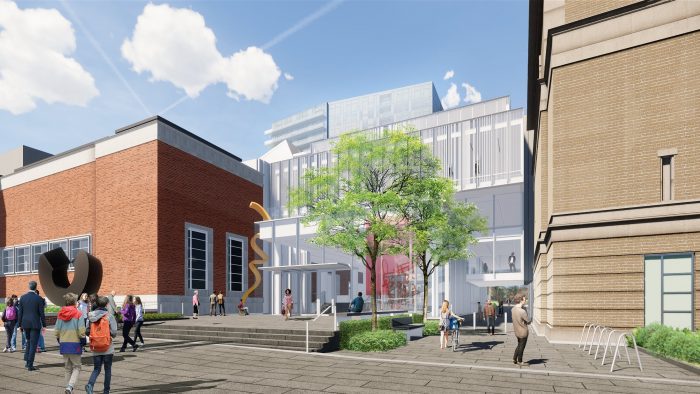
Amount Requested: $1,000,000
Estimated Project Costs: $77,918,758
Received $1,000,000 in 2017The Portland Art Museum’s Rothko Pavilion will connect its two current buildings with a community common to improve access to the Museum for all Oregonians. While this project has been envisioned since 2012, the Museum recently voluntarily went through reviews with the City of Portland’s Landmarks Commission to maximize access for all people – this resulted in significant design improvements and new costs to fund pedestrian passageways to Portland’s Park Blocks, more elevators and restrooms, connections between the Museum’s current buildings across all four floors, and the new central public plaza. PAM is the oldest art museum on the West Coast and serves over 450,000 visitors annually. Admission is free for children, school groups and, on select days, for all. Nearly one-third of visitors received free or reduced cost access. As the largest art museum in Portland, the organization has a significant impact on the cultural sector and can generate more than. $330 m. in annual economic activity. The proposed expansion would create 605 new jobs and $27 m in regional incomes as estimated by ECO Northwest. PAM has raised over $60 m. to date for this project. CAC recommended them for a $2 m. CREF grant in 2017 and they ultimately received $1. m. Since that time, the project has increased in cost due to public improvements and we now recommend them again for an additional $1 m. to complete the Pavilion.
